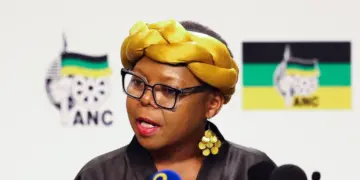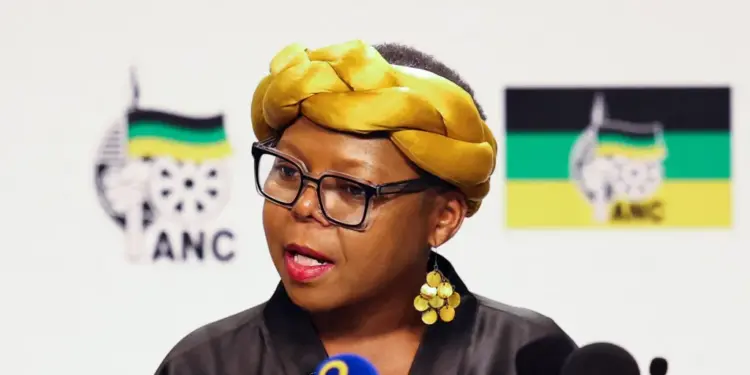By Enyichukwu Enemanna
Following its record electoral woe last week that cost it majority in the parliament, the governing African National Congress (ANC) in South Africa says it is considering forming a government of national unity that will include all parties.
ANC says it has reached out to parties that participated in the poll that saw it score little above 40% for the first time since 1994 when it first took power, ending the apartheid era, with Nelson Mandela being its first elected President.
Negotiations are still underway, the party noted. “The results indicate that the South Africans want all parties to work together,” ANC spokesperson Mahlengi Bhengu-Motsiri told journalists.
The centre-right Democratic Alliance (DA) got 22% of votes, the MK party of former President Jacob Zuma made 15% while the radical Economic Freedom Fighters was left with 9%.
Under South Africa’s proportional representation system, any government would need to be formed of parties which together got more than 50% of the vote.
ANC having falling short of this bench-mark for the first time in 30 years will need an alliance to produce the country’s next President.
Its spokesperson says the party has had discussions with the DA, the EFF and other smaller parties but despite reaching out to MK, there has been no positive response, Mahlengi Bhengu-Motsiri stated.
READ ALSO: When Will Famine Be Declared In Sudan?
Since the results were announced, there has been various speculations in South Africa about what sort of coalition could be formed.
Forming a government of national unity would not give the ANC opportunity of choosing who it could work with.
A coalition with the DA would have angered many party activists who see it as representing the interests of the white minority, a charge the party denies.
According to analysts, working with two radical parties that broke away from it – MK or the EFF, would have alarmed the business community, as they both favour seizing white-owned land without compensation and nationalising the mining sector.
There is also a wide chasm between MK and the ANC due to the personal animosity between President Cyril Ramaphosa and Mr Zuma, the man he replaced as ANC leader in 2018 after a bitter power struggle.
Zuma has said he is open to working with the ANC as long as it has a new leader, while the ANC has said President Ramaphosa will not be removed and that it is non-negotiable.
While it will be difficult to get parties from across South Africa’s political spectrum to agree on common policies, Ms Bhengu-Motsiri was optimistic.
“We believe that despite any differences we may have, working together as South Africans, we can seize this moment to usher our country into a new era of hope,” she said.
She added that the ultimate decision on the way forward was up to the ANC’s national executive committee, which will be meeting on Thursday.


































